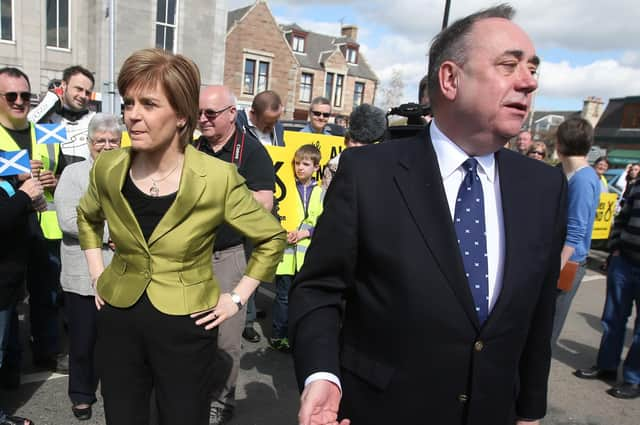Alex Salmond or Nicola Sturgeon: Who is not abiding by the 'duty of candour'? – Brian Wilson


According to the Civil Service code, failure by public servants to disclose evidence which might enlighten the truth is bad form, because it is lacking in “candour”.
We now know that as Nicola Surgeon and her inner circle ploughed on with defending an action they could not win, their own counsel and the judge, Lord Pentland, reminded them of their “duty of candour”.
Advertisement
Hide AdAdvertisement
Hide AdThey continued anyway until the crash with reality when Lord Pentland damned their defence as "unlawful in respect that they were procedurally unfair" and "tainted with apparent bias", while awarding Mr Salmond costs of over £500,000 with the overall price-tag at least double that.
It seems extraordinary that not a single head has rolled in deference to that outcome. Instead, the prevarication continues and evidence which could bring this unsavoury affair to a conclusion remains withheld. It is farcical.
I suppose “duty of candour” covers the ground between downright lies and truthfulness; Sir Humphrey territory. But at what point does failure to disclose relevant information create such a distortion of truth as to become tantamount to lies?
That enigma is at the heart of the committee’s frustrations but this is no sitcom (though an eye-watering £54,378 of Scottish taxpayers’ money to coach senior civil servants in their evidence, so inept that four had to return to correct previous testimony, does open up a new element of farce).
The first underlying question is whether a conspiracy evolved at the highest levels of the Scottish government and its ruling party to deprive a man of his liberty. The second is whether, as alleged by Mr Salmond, his successor repeatedly misled MSPs about her own role.
I have no brief for either principal player or privileged access to the definitive truth. However, I do have a deep attachment to the concept of guilt or innocence being determined in a court of law, rather than within the confines of St Andrew’s House.
When Police Scotland was formed, I was among those who expressed concern that the various branches of law enforcement were being brought too close together with the potential for political involvement. Nothing about this case has diminished these concerns.
The inescapable logic of evidence so far is that Salmond or Sturgeon is – to borrow the euphemism – failing grievously in the “duty of candour”. The committee must hear from both and thereafter the facts are well capable of being established.
Advertisement
Hide AdAdvertisement
Hide AdHowever, that cannot happen without the missing evidence – legal advice, e-mails, WhatsApp messages and all. Yet every device is being deployed not to produce them. This must stop before the “finishing line” of delay – ie pre-election purdah – comes within sight.
In these extraordinary circumstances, is there no role for the Presiding Officer at Holyrood to defend the integrity and credibility of the institution if the alternative is for this inquiry to run into the ground because of obstruction?
Much of this week’s evidence (including Mr Salmond’s written intervention) dealt with meetings involving the Permanent Secretary, Leslie Evans, the investigating officer and two complainants. These proved crucial to Lord Pentland’s ruling and also, in Mr Salmond’s submission, could have been highly relevant to his defence in the criminal case.
Pressed by the admirably forensic Jackie Baillie MSP on why one meeting was not disclosed, Ms Evans replied that it was “not particularly concealed”. Ms Baillie responded: “So, it was not concealed but neither was it disclosed. That is unfortunate, given the duty of candour that exists.” Quite.
Ms Baillie pressed Ms Evans on whether a warrant, requiring the Scottish government to hand over all relevant documents to the criminal investigation, was fully complied with. Ms Evans replied: “I cannot tell you at this stage.” Mr Salmond alleges “prima facie, a contempt of court”.
These are serious matters for the personnel directly involved and also the credibility of the Scottish Parliament. It is past time for the duty of candour to be compelled from all sources – or else confess to a shameful failure of accountability.
A message from the Editor:
Thank you for reading this article. We're more reliant on your support than ever as the shift in consumer habits brought about by coronavirus impacts our advertisers.
If you haven't already, please consider supporting our trusted, fact-checked journalism by taking out a digital subscription.
Comments
Want to join the conversation? Please or to comment on this article.
